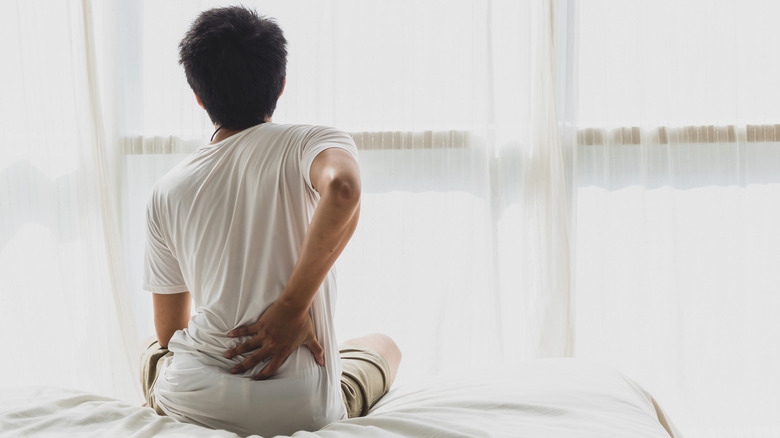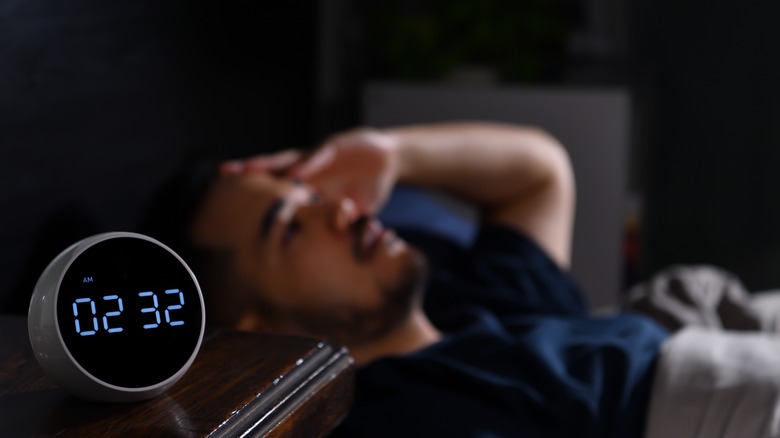Can Poor Sleep Quality Lead To Lower Back Pain?
Sleep quality impacts everything from our skin and weight to our hormone production and immune system. Our appetites, attitudes, and blood pressure can all be swayed in one direction or the other, depending on how well we've been sleeping. For people with lower back pain — constantly repositioning as they try to get comfortable — productive sleep can be hard to come by. But what if poor sleep is what's actually causing the low back pain in the first place?
One 2015 study found that people with low back pain slept for a shorter period of time and their sleep quality suffered, which indicates that a sore back can negatively impact sleep. However, in a 2014 study published in the Clinical Journal of Pain, researchers determined that in people with lower back pain, a poor night's sleep caused an increase in the intensity of pain they felt the following day. They also confirmed that a day filled with severe back pain often led to a night of cruddy sleep. This suggests that not only can lower back pain negatively impact sleep, but poor sleep can also exacerbate lower back pain.
How poor sleep can affect lower back pain
With the help of genome-wide association testing, researchers who participated in a 2022 study published in Frontiers in Neuroscience confirmed that insomnia and lower back pain have what they call a "bidirectional causal association." That means each factor may contribute to — or exacerbate — the other. But while back pain causing sleep disturbances is easy to understand, why poor sleep would worsen back pain is a little more nuanced.
Spine Health explains that when our bodies don't get the sleep they require, it becomes more difficult for them to carry out their tasks, like releasing growth hormones. When we sleep, our bodies set loose growth hormones whose job it is to tend to the parts of the body that need healing. When we don't sleep, those hormones are too tired to go to work and alleviate our ailing lower backs. Our central nervous system is also negatively impacted by low-quality sleep which can decrease our pain tolerance — making our back pain feel even worse.


